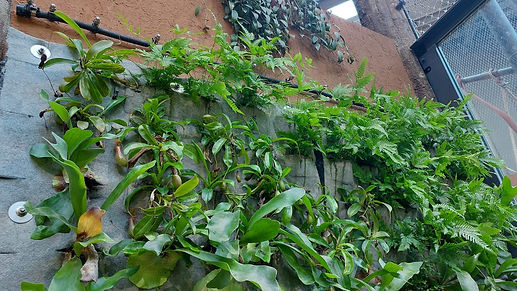Maruyama Zoo
Where nature meets conservation in the heart of Sapporo!
Explore Maruyama Zoo
Immersive Visitor Experience
Maruyama Zoo is more than just a place to see animals; it focuses on enhancing the visitor experience too. The inviting atmosphere encourages you to take your time exploring. Inside the facility, displays provide valuable insights into animal behaviors, conservation efforts, and their natural habitats. Additionally, guests can appreciate the beauty of the animals up close.
Educational Efforts and Local Species
Maruyama Zoo not only showcases exotic animals but also highlights Hokkaido's endangered native species, raising awareness about regional conservation needs. While many visitors are drawn to the exotic creatures, local animals like the Hokkaido brown bear and Japanese serow are vital to the zoo's mission. Educational boards inform guests about the diversity of the animals and the challenges local species face, while zoo’s breeding programs demonstrate its commitment to preserving these species for future generations. This blend of entertainment and education creates a meaningful experience for visitors of all ages.
Impressive Indoor Facilities
Maruyama Zoo features impressive indoor facilities that house animals from tropical, African, and American regions, reflecting its commitment to their welfare, especially during Hokkaido freezing winters.
Watch Our Vlog
Watch our vlog now for all the highlights.
Navigation
Step into the world of Maruyama Zoo: Click here to explore diverse species and captivating habitats.

Immersive Visitor Experience
Maruyama Zoo is more than just a place to see animals; it focuses on enhancing the visitor experience too. The inviting atmosphere encourages you to take your time exploring. Inside the facility, displays provide valuable insights into animal behaviors, conservation efforts, and their natural habitats. Additionally, guests can appreciate the beauty of the animals up close.
![20240427_151213[1].jpg](https://static.wixstatic.com/media/b8529a_7ab6bf9492ac48a4b608e1f5146599b8~mv2.jpg/v1/fill/w_275,h_489,al_c,q_80,usm_0.66_1.00_0.01,enc_avif,quality_auto/b8529a_7ab6bf9492ac48a4b608e1f5146599b8~mv2.jpg)
Educational Efforts and Local Species
Maruyama Zoo not only showcases exotic animals but also highlights Hokkaido's endangered native species, raising awareness about regional conservation needs. While many visitors are drawn to the exotic creatures, local animals like the Hokkaido brown bear and Japanese serow are vital to the zoo's mission. Educational boards inform guests about the diversity of the animals and the challenges local species face, while zoo’s breeding programs demonstrate its commitment to preserving these species for future generations. This blend of entertainment and education creates a meaningful experience for visitors of all ages.

Impressive Indoor Facilities
Maruyama Zoo features impressive indoor facilities that house animals from tropical, African, and American regions, reflecting its commitment to their welfare, especially during Hokkaido freezing winters.
Visitors enjoy lush vegetation and vibrant plants that mimic natural habitats. The orangutan area, for instance, includes simulated rainforests with real trees and climbing spaces, providing comfort the animals and a captivating experience for guests. Ferns are planted the Orangutan and Borneo Forest Facility.

Watch our vlog !!
Red List in Maruyama Zoo
Animal species (Common / scientific / | IUCN Red List | Ministry of Environment Japan Red List | Hokkaido Red List |
|---|---|---|---|
Amur tiger (Panthera tigris ) | EN (endangered species) | -(Foreign species) | - |
Polar bear (Ursus maritimus, mammal) | VU (Vulnerable species) | -(Foreign species) | - |
Bornean orangutan (Pongo pygmaeus, mammal) | CR (extreme crisis) | -(Foreign species) | - |
Xinling wolf (Canis lupus occidentalis, mammal) | LC (low risk) | -(Foreign species) | - |
Ezo brown bear (Ursus arctos yesoensis, mammal) | LC (low risk) | -(Domestic) | Species of concern |
Ezo Owl (Strix uralensis japonica, birds) | LC (low risk) | NT (semi-endangered) | Species of concern |
Blakiston's fish owl (Ketupa blakistoni, birds) | EN (endangered species) | CR (Class IA) | CR (Class IA) |
Japanese crane (Grus japonensis, Birds) | EN (endangered species) | EN (Class IB) | EN (Class IB) |
Humboldt penguin (Spheniscus humboldti, bird) | VU (Vulnerable species) | -(Foreign species) | - |
Snow Leopard (Panthera uncia, Mammalia) | VU (Vulnerable species) | -(Foreign species) | - |
Alligator sinensis (Alligator sinensis, reptile) | CR (extreme crisis) | -(Foreign species) | - |
Aldabra giant tortoise (Aldabrachelys gigantea, reptile) | VU (Vulnerable species) | -(Foreign species) | - |
Burmese python (Python bivittatus, reptile) | VU (Vulnerable species) | -(Foreign species) | - |
Izomey's Hermit Frog (Dendrobates tinctorius, Amphibia) | LC (low risk) | -(Foreign species) | - |
-
Least Concern (LC): Taxa for which evaluation has determined to be of relatively low risk of extinction.
-
Near Threatened (NT): Taxa that are close to qualifying for or are likely to qualify for a threatened category in the near future.
-
Vulnerable (VU): Taxa facing a high risk of extinction in the wild.
-
Endangered (EN): Taxa facing a very high risk of extinction in the wild.
-
Critically Endangered (CR): Taxa facing an extremely high risk of extinction in the wild.

General Information
Address
📍3 Chome-1 Miyagaoka, Chuo Ward, Sapporo, Hokkaido 064-0959, Japan
Contact
Opening Hours
0930 - 1600 (winter)
0930 - 1630 (summer)
Last entry 30 minutes before closing time

